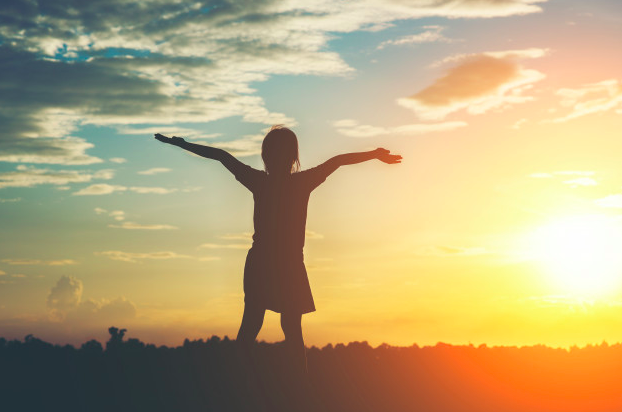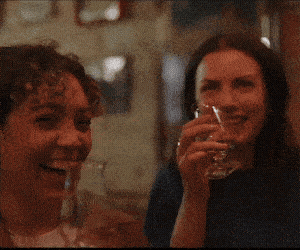WITH the restrictions in place due to this phase of cocooning mass gatherings are banned for the summer, no music festivals and GAA games are in limbo.
Gerry Raftery is the Co-Ordinator of Mindfulness Programmes at Personal Milestones and shares tips on how we can be grateful during this pandemic.
Can We be Grateful Now?
It has emerged recently that many of the great events we associate with our Irish summer will not take place.
No Saturday or Sunday games, no Concerts in large outdoor venues, no Pilgrimages to Knock, no Galway Races, no Summer Festivals, no Agricultural Shows, no Tidy Towns. Probably there will be no holidays abroad and maybe just limited visits to the seaside at home – weather permitting! And possibly no barbers or hairdressers. A bleak picture!
This will be the reality of the summer ahead. So how can we make the most of it?
Basically, we need to learn to come to terms with it. Though it will not be easy, we have to Accept it as it is. Acceptance frees us to make the most of what we have. It allows us to begin to discover what’s possible, safe and satisfying within the massive limitations imposed as a result of the danger created by the Coronavirus.
I would suggest that one of the ways we can begin to do this is to focus positively on what we have right now, rather than moaning about what we haven’t got in our lives going forward. This brings us into what is known as the Gratitude Space.
Today the practice Gratitude is being strongly promoted by Mindfulness and by Positive Psychology as the way to healthy living and happiness in difficult circumstances. I believe that it can be very helpful at this time to focus on being grateful, though in reality it is extremely challenging to do so.
The Power of Gratitude
So, what is Gratitude? It is an appreciation of what we have and a recognition of what is good in our lives.
Gratitude is something ordinary and every-day. However, Gratitude has a depth and a value which we don’t often recognise. We can take so much for granted. If we apply the power of Gratitude to our lives in the present crisis, we can improve our well-being and find greater happiness.
The practice of Gratitude brings us into a very positive space where we count our blessings and recognise all that is good around us. This doesn’t mean ignoring all that is difficult in life or the suffering which surrounds us. It can be a real challenge to be in a positive space at the moment. Gratitude can help us to get there.
Focusing on what We Have
When we focus on what we have now we become aware of opportunities which we didn’t realise we had before?
We certainly have a lot of Time, Time to do things we were too busy to do or neglected to do before. We probably have a lot of time to spend with ourselves. From living in a busy crowded world, we can find ourselves thrust into solitude and silence.
But maybe this Solitude and Silence gives us a chance to explore the deeper meaning of our lives and get to know ourselves better. We can learn more ways to develop our mental health, strength and well-being. Is this not something for which we can feel a sense of gratitude?
Gratitude brings us to focus on what we have. We focus on our gifts, on our assets and on all of the good things in our lives. We can feel Gratitude for the big things of our lives – the people we love, our own talents and interests, our home and our community.
We can become grateful even for the little everyday things – a cup of coffee, the song of the bird or the smell of a flower.
Oprah Winfrey says, “Be thankful for what you have and you will end up having more. If you concentrate on what you don’t have you will never, ever have enough.”
Gratitude Practices
Why not allow Gratitude to become a mind-set and allow it to punctuate your day?
Begin the day with a sense of Gratitude. As the new day begins be grateful for life and for the opportunities which this new day will surely bring. This enables you to begin the day on a positive and optimistic note.
Follow the teaching of Marcus Aurelius, Roman Emperor and Philosopher: “When you arise in the morning think of what a privilege it is to be alive, to think, to enjoy, to love. Each day provides its own gifts.”
One of the Mindfulness Gratitude exercises which I teach people comes from an Oxford Professor of Mindfulness, Mark Williams. People who do this exercise on a regular basis find that it brings them great contentment and peace even in tough times.
Professor Williams recommends his ten-finger Gratitude Exercise: “Once a day bring to mind ten things for which you are grateful, counting them on your fingers. It is important to get to ten things, even when it becomes increasingly difficult after three or four! This is exactly what the exercise is for – intentionally bringing into awareness the tiny previously, unnoticed, elements of the day.”
Towards the end of your day why not try this exercise?
Despite living a quite restricted life at the moment it is amazing how much happens in your day. In the midst of great loss, we can still find blessings to count. Feel grateful and you will end your day feeling good about yourself and about life.
Some people find a Gratitude Journal helpful. Just write down the ten things for which you feel grateful at the end of your day. Read back over them and you see how good life really is.
We teach our children good manners by telling them to say the magic words, “Please” and “Thanks”. Thanks, can certainly be a magic word for us today.
Take care of yourselves through being Grateful.



